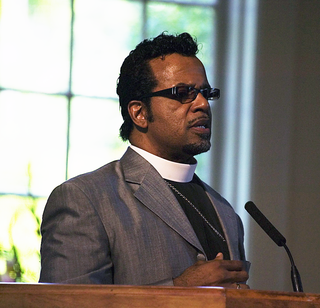A Quote by Michael S. Heiser
It's important for people in the Church to realize that the way they talk and think about the Bible isn't the way Bible scholars talk and think about it - and I'm including "Bible-believing" scholars there. There is a wide gap between the work of biblical scholars, whose business it is to read the text of the Bible in its own worldview context, and what you hear in church.
Related Quotes
This withdrawal of theology from the world of secular affairs is made more complete by the work of biblical scholars whose endlessly fascinating exercises have made it appear to the lay Christian that no one untrained in their methods can really understand anything the Bible says. We are in a situation analogous to one about which the great Reformers complained. The Bible has been taken out of the hands of the layperson; it has now become the professional property not of the priesthood but of the scholars.
The Bible judges the church; the church does not judge the Bible. The Bible is the foundation for and the creator of the church; the church is not the foundation for or creator of the Bible. The church and its hierarchy must be evaluated by the believer with the biblical gospel as the touchstone or plumb line for judging all truth claims.
My claim is simply that the literary approach is one necessary way to read and interpret the Bible, an approach that has been unjustifiably neglected. Despite that neglect, the literary approach builds at every turn on what biblical scholars have done to recover the original, intended meaning of the biblical text.
We, including many Christians, read the Bible through "eyes" conditioned by, and even accommodated to, modern Western culture plus the influences of messages and ideas from other cultures that are alien to the worldview of the biblical writers. Therefore, in order fully to understand the Bible and allow the Bible to absorb the world (rather than the world - culture - absorb the Bible) we must practice an "archaeology" of the biblical writers' implicit, assumed view of reality.
What I mean by context is worldview - having the ancient Israelite or first-century Jew in your head as you read. How would an ancient Israelite or first-century Jew read the Bible - what would they be thinking in terms of its meaning? The truth is that if we put one of those people into a small group Bible study and asked them what they thought about a given passage meant, their answer would be quite a bit different in many cases than anything the average Christian would think. They belonged to the world that produced the Bible, which is the context the Bible needs to be understood by.
Today there survives more than 25,0000 partial and complete, ancient handwritten manuscript copies of the New Testament. These hand written manuscripts have allowed scholars and textual critics to go back and verify that the Bible we have in our possession today is the same Bible that the early church possessed 2,000 years ago.
It is fashionable in some academic circles to exercise scholarly criticism of the Bible. In so doing, scholars place themselves above the Bible and seek to correct it. If indeed the Bible is the Word of God, nothing could be more arrogant. It is God who corrects us; we don’t correct Him. We do not stand over God but under Him.
Logically, taking Scripture seriously means being passionately concerned about interpreting it correctly and thus welcoming any evidence that exposes erroneous understandings of the biblical text. Unfortunately, many zealous Bible students and teachers confuse their favorite interpretations of the Bible with the Bible itself.
Bible Gateway has created a way to make the Word of God accessible and reflective of the technological world we live in. Bible Gateway has proven that embracing innovation can bring people closer to God. I've used unconventional ways to bridge the gap between the secular and the spiritual worlds in my own career, so I admire Bible Gateway's bold, brilliant, and effective way of contributing to the spiritual journeys of many people around the world.
































